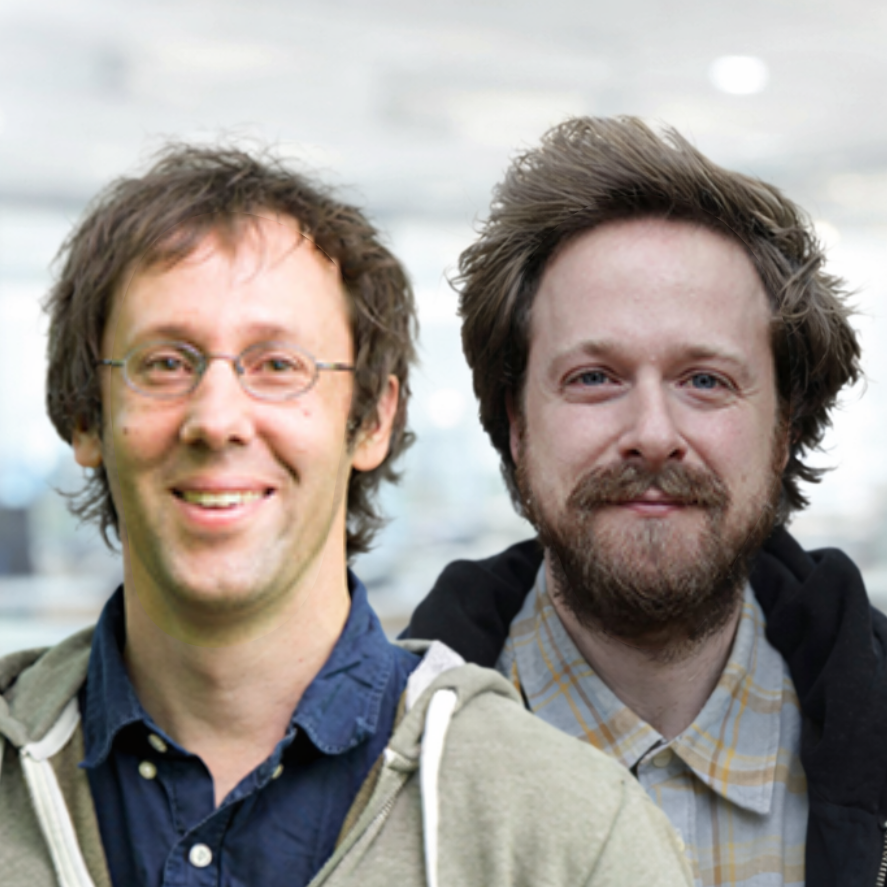
Each new session is announced by e-mail. To join our mailing list, please contact Thomas Lesaffre (thomas.lesaffre@unil.ch) and Malvika Srivastava (malvika.srivastava@unil.ch).
Next sessions

Miguel dos Santos
Session 20/02/2026
Laurent Lehmann
Charles Mullon
Session 20/03/2026

Ekaterine Kikodze
Session 17/04/2026
Cédric Perret
Session 01/05/2026
Thomas Lesaffre
Session 15/05/2026
Malvika Srivastava
Session 29/05/2026
Ritam Das
Session 12/06/2026
Ehouarn Le Faou
Session 27/06/2026Guidelines for hosting a topic group session
Before the session
-
You are free to choose the topic of the day, as long as it fits the scope of our topic group (i.e. theory in ecology or evolutionary biology). You may decide to present some of your work, a published paper (which can be classical or recent), or a mixture of the two. However, after the session preceding yours at the latest, you must talk to Sara, Charles and/or Laurent about what you plan to present so that they validate it or suggest alternatives.
-
At least a week before your session, send a message to the organiser (thomas.lesaffre@unil.ch) briefly explaining your plan for the session (one or two sentences is enough) with the paper you wish to discuss attached, if any.
-
You are responsible for the session that was assigned to you. If you cannot host it, you need to e-mail the organiser well in advance to give time for someone to step in.
During the session
-
Start your presentation with a short introduction. Explain what you wish to accomplish by the end of the session, introduce the biological problem we are going to discuss, explain why it is interesting and how it fits in the literature.
-
Give a complete biological description of the model, which should include information on:
- the general assumptions: what is the demography of the population (e.g. constant or fluctuating size, class-structure, is the population well-mixed or structured)? What are the features by which individuals are characterised (e.g. are sexes combined or separate, what are the traits relevant to characterise them in the model)?
- the life cycle: what are the events occurring over the course of a timestep? Be thorough for each of them, and introduce relevant parameters and functions.
- the evolving trait(s) and their underlying genetic architecture (e.g. ploidy, number of loci are involved, mutation model...).
-
Outline the method that we will use to attack the model and explain what we are going to ask our model (e.g. what are we solving for?). Importantly, the method does not have to be the one presented in the paper. If you think the same results can be obtained with a more modern approach for example, go for it!
-
Explain the logic of the analysis and how the results are obtained without going into the details of the calculations unless you think it is important to do so. In any case, you should avoid doing long derivations on the board.
-
Use the screen to show plots, important equations etc… If you make slides, they have to be clear but they do not need to be pretty (no one cares!). A Mathematica notebook can do the trick.
Past sessions

Denis Roze
Session by Invited Speaker, 06/02/2026
Julie Roux
Session 05/12/2025
Ewan Flintham
Session 21/11/2025
Prajwal Padmanabha
Session 07/11/2025
Vitor Sudbrack
Session 24/10/2025
Arthur Weyna
Session 26/09/2025
Afra Salazar
Session 20/06/2025
Ehouarn Le Faou
Session 06/06/2025
Carl Mackintosh
Session 23/05/2025
Ritam Das
Session 09/05/2025
Mai Thu Nguyen
Session 25/04/2025
Cédric Perret
Session 11/04/2025
Malvika Srivastava
Session 28/03/2025
Roman Stetsenko
Session by Invited Speaker, 14/03/2025
Miguel dos Santos
Session 28/02/2025
Vitor Sudbrack
Session 31/01/2025
Iris Prigent
Session 06/12/2024
Thomas Lesaffre
Session 22/11/2024
Ewan Flintham
Session 08/11/2024
Prajwal Padmanabha
Session 25/10/2024
Ludovic Maisonneuve
Session 11/10/2024
Arthur Weyna
Session 27/09/2024
Vitor Sudbrack
Session 21/06/2024
Ehouarn Le Faou
Session 07/06/2024
Cédric Perret
Session 24/05/2024
Mai Thu Nguyen
Session 10/05/2024
Afra Salazar
Session 26/04/2024
Tim Connallon
Session by Invited Speaker, 12/04/2024 at 14:00
Arthur Weyna
Session 15/03/2024 at 13:30
Massimo Amicone
Session 01/03/2024 at 13:30
Vitor Sudbrack
Session 16/02/2024
Ewan Flintham
Session 08/12/2023
Iris Prigent
Session 24/11/2023
Ludovic Maisonneuve
Session 10/11/2023
Thomas Lesaffre
Session 27/10/2023
Ehouarn Le Faou
Session 13/10/2023
Cédric Perret
Session 29/09/2023
Arthur Weyna
Session 22/06/2023 at 16:00 (exceptionally)
Cédric Perret
Session 09/06/2023
Vítor Sudbrack
Session 26/05/2023
Laurent Lehmann
Session 12/05/2023
Ehouarn Le Faou
Session 28/04/2023
Massimo Amicone
Session 14/04/2023
Afra Salazar
Session 31/03/2023
Mai Thu Nguyen
Session 17/03/2023
Ludovic Maisonneuve
Session 03/03/2023
Ewan Flintham
Session 03/02/2023
Iris Prigent
Session 09/12/2022
Afra Salazar
Session 25/11/2022
Thomas Lesaffre
Session 11/11/2022
Ehouarn Le Faou
Session 28/10/2022
